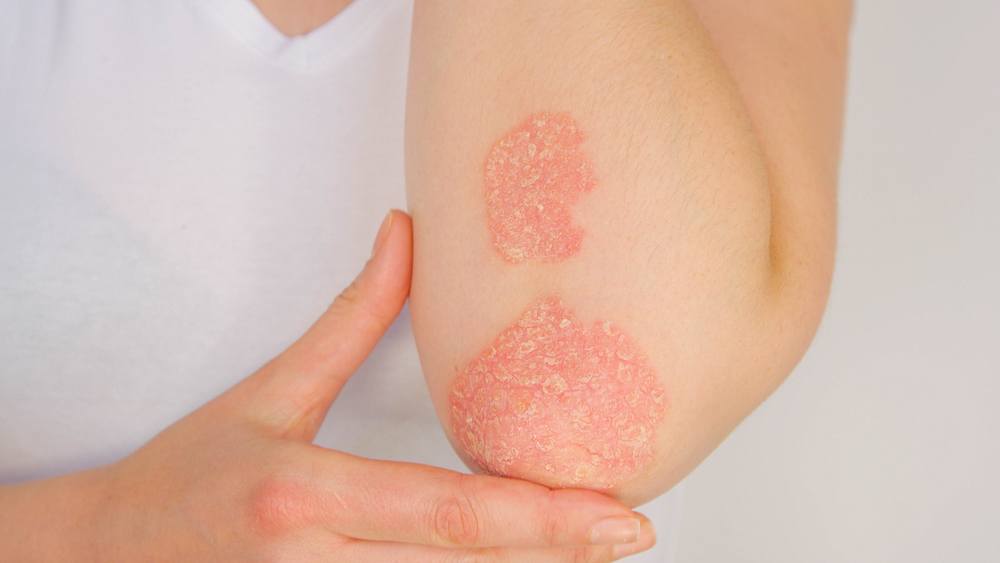
According to the International Federation of Psoriasis Associations (IFPA), nearly three percent the world’s population has some form of psoriasis.
Continue reading to learn all about psoriasis symptoms, causes, and treatment options.
What Is Psoriasis?
Psoriasis is a chronic skin condition characterized by rapid skill cell proliferation. As these cells accumulate on the skin’s surface, they form itchy, red patches with silvery scales known as plaques.
While psoriasis commonly presents on the scalp, elbows, knees, it can affect other parts of the body, including the palms, soles of the feet, armpits, groin, fingernails, and toenails
What Are the Different Types of Psoriasis?
The most common type of psoriasis is plaque psoriasis which produces red, itchy lesions.
Additional forms of psoriasis include: Pustular psoriasis, erythrodermic psoriasis, and guttate psoriasis.
Psoriasis can also impact joints of the hands in the form of psoriatic arthritis.
What Causes Psoriasis?
Psoriasis has a strong genetic component, so it’s important to know if someone in your family has been diagnosed with the condition.
Environmental factors, infection (such as strep throat), certain medications (including beta-blockers, lithium, antimalarial drugs), and localized skin trauma or injury can also cause psoriasis.
What Are the Treatment Options for Psoriasis?
Due to its chronic nature, psoriasis symptoms wax and wane over time and can vary in severity.
And while psoriasis isn’t curable, there are a number of treatment options to alleviate associated symptoms.
For mild cases of psoriasis, topical therapy, which may include corticosteroids, vitamin D analogues, retinoids, salicylic acid, coal tar, and moisturizers, is often effective in managing symptoms.
Treatment options for more severe cases of psoriasis include:
- Oral medications (such as acitretin, methotrexate, cyclosporine, and apremilast)
- Injectable medications
- Ultraviolet light therapy
Learn More About Psoriasis
If you would like additional information about the diagnosis and treatment of psoriasis, please call our office today to schedule a comprehensive consultation with board-certified dermatologist Dr. Johnathan L. Chappell.
